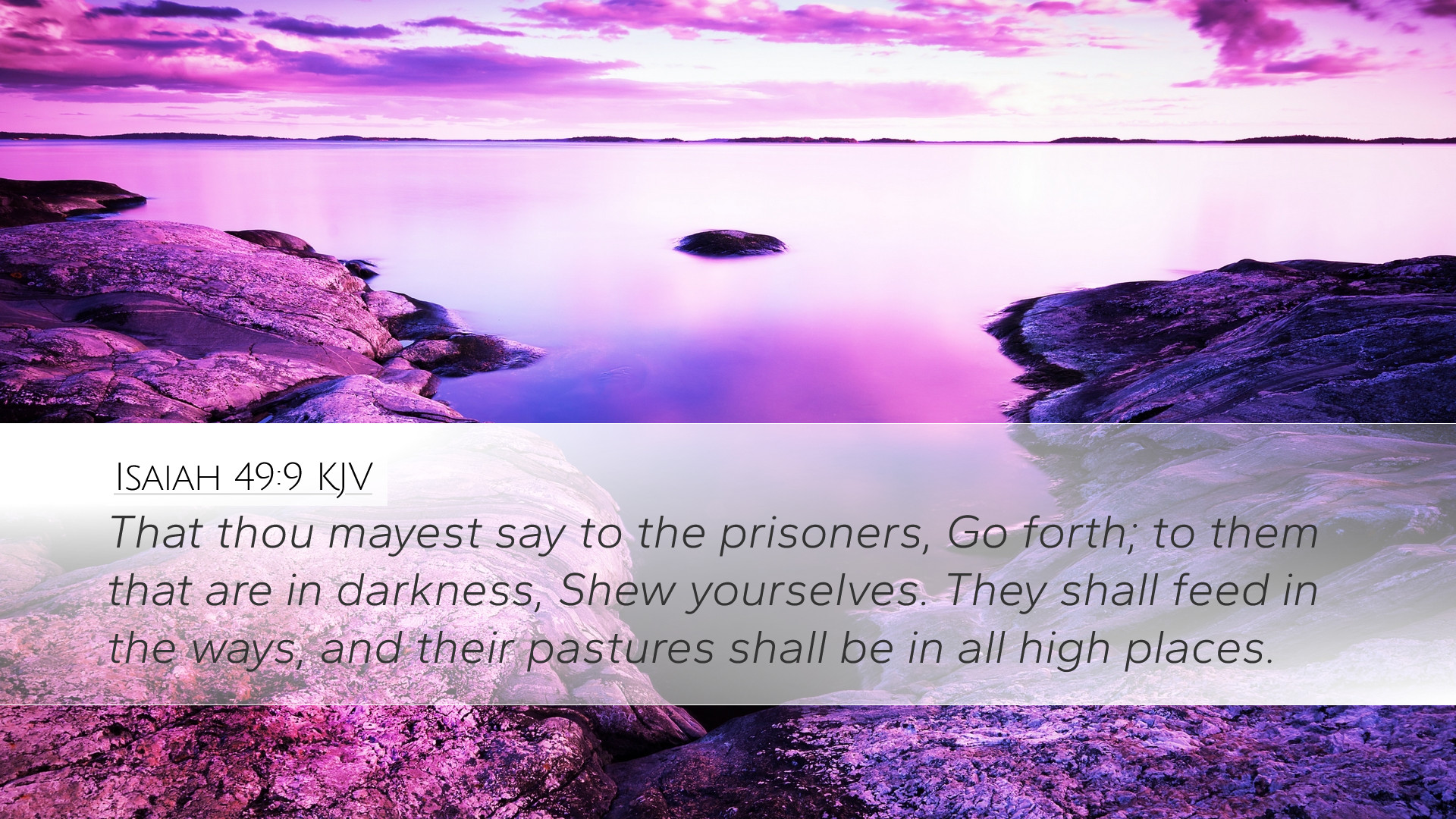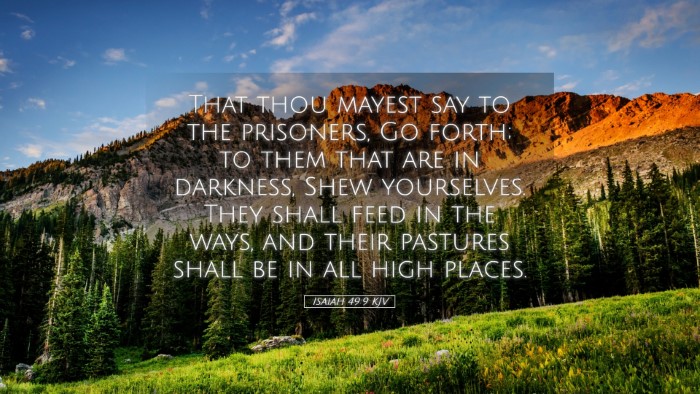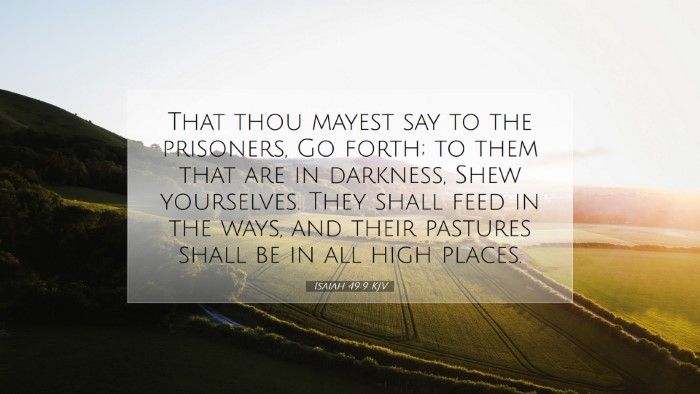Commentary on Isaiah 49:9
Isaiah 49:9 reads: "That thou mayest say to the prisoners, Go forth; to them that are in darkness, Shew yourselves." This verse encapsulates a profound call to liberation and hope. It serves as a pivotal reflection of God's promise to His people and has been the subject of numerous public domain commentaries.
Historical Context
The context of Isaiah’s prophecy stems from a period of exile and oppression for the people of Israel. The Israelites, having turned away from God's commandments, found themselves in a land of captivity, desiring freedom and restoration. This prophetic utterance by Isaiah seeks to reassure them of God's intention to redeem his people.
Matthew Henry's Commentary
Matthew Henry emphasizes the theme of deliverance present in this verse, noting:
- A Call to Freedom: Henry articulates that the call to "Go forth" signifies an invitation to liberation from both physical and spiritual bondage. It is a reassurance that God will address the captivity of His people.
- Light for the Darkness: In addressing those "in darkness," Henry applies a dual interpretation, suggesting it pertains to moral and spiritual darkness as well as the physical confinement experienced by the captives. The bringing to light denotes God’s promise that those who dwell in despair will experience the joy of His presence.
- The Role of the Servant: This verse is indicative of the Messianic prophecies, wherein the servant of the Lord is assigned the task of emancipation. For Henry, it articulates a foreshadowing of Christ’s ministry of preaching good news to the poor and setting the captives free.
Albert Barnes' Commentary
Albert Barnes provides a critical analysis of the verse, suggesting:
- Literal Interpretation: Barnes states this verse serves as an announcement to the exiles in Babylon, proclaiming the end of their detention. He elaborates that this directive embodies both a call to physical freedom and the assurance of restoration back to their homeland.
- Spiritual Implications: Barnes identifies the implications of light being offered to those in darkness as representing the revelation of God's truth to a lost world. This light signifies the coming of redemption and the exposure of sin through God's Word.
- Reassurance of Divine Presence: He emphasizes that God's proclamation is not merely a call but a promise. The encouragement to "shew yourselves" implies an active participation in their own deliverance, revealing a divine partnership in restoration.
Adam Clarke's Commentary
Adam Clarke offers a theological perspective, asserting:
- The Messianic Message: Clarke correlates this prophetic statement to the ministry of Christ, highlighting that it reflects Christ’s mission to seek and save the lost. He notes that it showcases the very purpose of the gospel—to reach those in captivity to sin and darkness.
- Symbolism of Darkness and Light: Clarke speaks to the biblical symbolism inherent in light and darkness, where darkness represents ignorance and sin, while light represents knowledge and salvation. The call to "shew yourselves" is an invitation to embrace that light and reject darkness.
- Context of Suffering: He notes the suffering aspect of captivity, portraying that deliverance often comes with a personal acknowledgment of one’s plight, suggesting that true freedom begins with the recognition of the bondage one is in.
Theological Implications
The theological implications of Isaiah 49:9 reach beyond the immediate context of Israel's return from exile. The verse is a prophetic anticipation of the New Covenant, where Jesus serves as the fulfillment of God's promise of deliverance:
- Universal Application: This call to go forth and emerge from darkness is extended to all of humanity. It signifies the overarching theme of salvation, which is not limited to a specific people but is available to all who seek God's light.
- God's Initiative in Restoration: This passage exemplifies God's sovereignty and grace in initiating restoration, asserting that it is God's desire to see His people free from all forms of bondage, be it spiritual, physical, or emotional.
- Response from God's People: The command to "shew yourselves” requires a response from those who are called. It implies an active participation in the act of liberation, urging believers to step into the light and embrace their identity as children of God.
Conclusion
Isaiah 49:9 serves as a beacon of hope, portraying God's fervent desire to liberate His people from darkness and oppression. The insights provided by Matthew Henry, Albert Barnes, and Adam Clarke converge to illuminate this verse's richness. It not only speaks to the historical audience of Isaiah but resonates across millennia, calling all believers to recognize their freedom in Christ and share that light with others.


